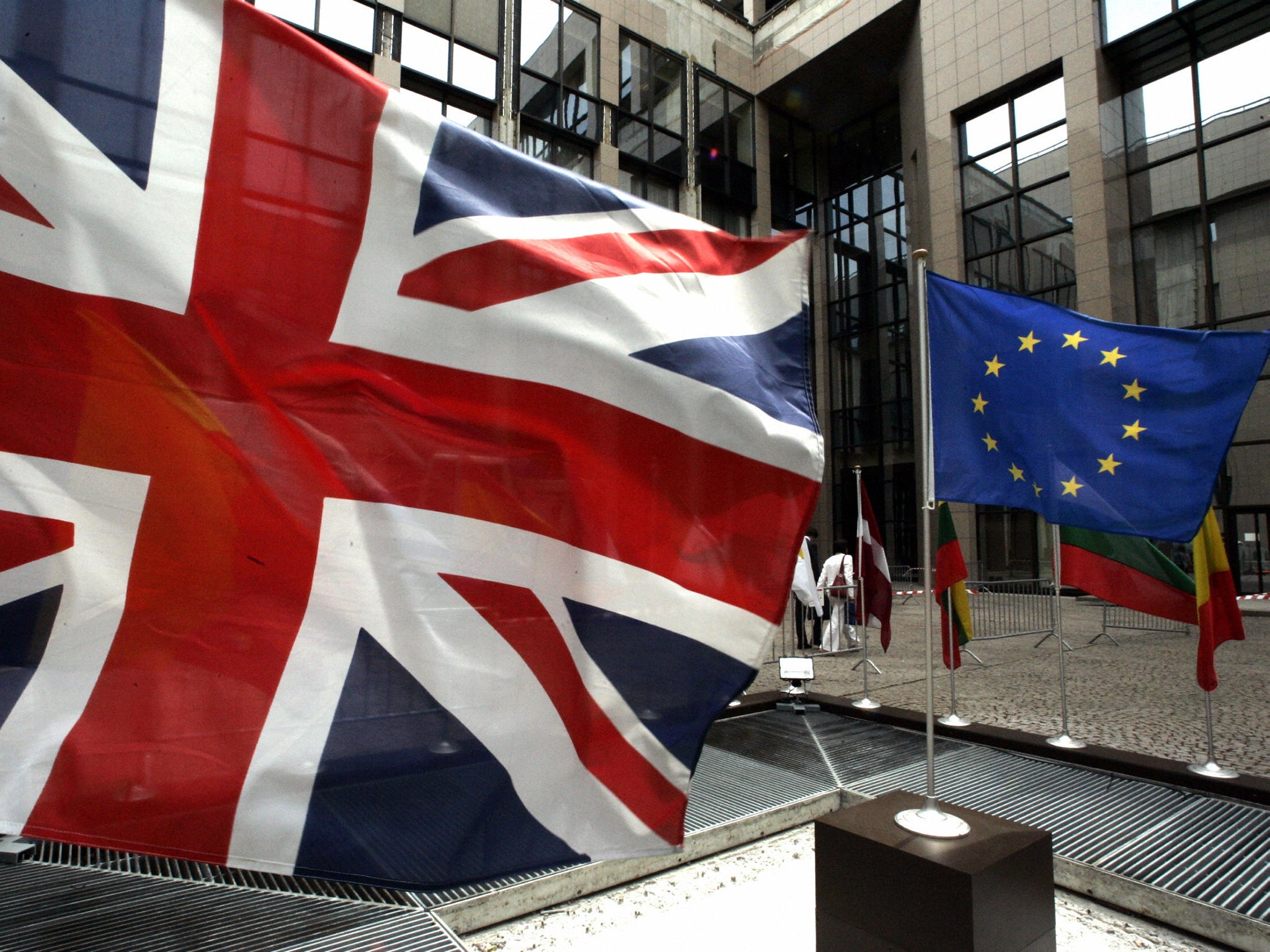Britain's EU In Campaign must set the agenda
Vote Leave could pull together. Some of its people were, after all, behind the successful No2AV referendum

It is worth remaking the case for Britain’s membership of the European Union from first principles as the campaigns for the referendum – for which a date has still not yet been set – get under way.
Since this newspaper was founded 25 years ago, it has been an advocate of the cause of European unity. In that time, the European community has changed its name and expanded its membership from 15 countries to 28. It has made mistakes, such as introducing a single currency that has divided its members and intensified the recession in many countries, but it has succeeded in bringing much of the continent together after the lifting of the Iron Curtain.
But the question that will now be asked before the end of 2017 is: why should the United Kingdom continue to be part of it? The original case for joining in 1973, that we would be better off as part of a common market that was more economically successful than us, was never fully realised, and has now, if anything, gone into reverse. Our economy has done better since the financial crash than that of the rest of the EU, so it is harder than ever to make the case that we need to be in the EU to advance our standard of living.
Yet it remains the case. The single market, for all its problems, does underwrite our prosperity even if its effects are not easily visible. It would be a mistake to turn our back on it because we would have no say over the terms under which we would be allowed access to a market of 440 million people.
Equally, engaging with voters’ concerns about freedom of movement and immigration must consist of more than saying, “We recognise your concerns”, and changing the subject. There are costs to a growing population, but they are outweighed by the benefits. Yet people won’t be persuaded of the latter unless pro-Europeans are honest enough to accept the former.
Nor is material self-interest the only, or even the most important, reason for staying in. Our European identity is part of being an open, outward-looking country, confident and at ease with our neighbours and the wider world.
The In Campaign has huge advantages that are nothing to do with the quality of the argument itself. By that we mean the divisions among the anti-EU forces, the scarcity of credible politicians on the Vote Leave side (the leading anti-EU campaign) and the lack of newspapers supporting them.
It tells us something that Owen Paterson, who left the Cabinet last year, and Lord Lawson, who was Chancellor before this newspaper was founded, are probably the most notable advocates of Brexit, and that only the Daily Express and the Sunday Express are currently explicit in support.
However, these conditions may not hold. Vote Leave could pull together. Some of its people were, after all, behind the successful No2AV referendum campaign four years ago. Many leading Conservatives are biding their time. Boris Johnson, the Mayor of London and George Osborne’s main rival for the succession to David Cameron, is the most threatening.
His speech to the Conservative conference last week was a brilliant combination of One Nation concern for the less well-off and a tightening of the Eurosceptic screw. Theresa May, the Home Secretary, is keeping her well-advertised options open. Some newspapers, similarly, seem to be waiting for a chance to strike. It was notable that, on Saturday, both The Sun and the Daily Mail raised Eurosceptic expectations of Mr Cameron’s renegotiation.
It is all the more important, therefore, that the In Campaign gets off to a good start. The better it can make its case early on, the more it can reinforce the belief of the betting markets, for example, that it will win, and the more it will deter Conservative politicians and newspapers from coming out for coming out.
Join our commenting forum
Join thought-provoking conversations, follow other Independent readers and see their replies
Comments